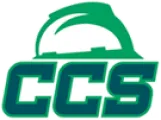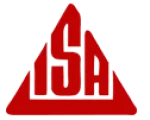Modern manufacturing plants in America play a crucial role
in various aspects of the economy, society, and technological advancement. Attributing
$7.1 trillion dollars to the U.S. economy in 2022, domestic manufacturing promotes
economic growth and job creation, innovation and technological advancement, a
healthy supply chain, and export and trade opportunities. They often support
local communities with investments in physical infrastructure, utilities,
transportation and community development, as well as "corporate citizen"
initiatives to positively impact the people of their communities. On a larger
scale, they play a critical role in our National Security and Resilience, reducing
our dependence on foreign sources for critical supplies.
But what does it take to keep manufacturing alive in America? At a minimum, reliable utility service.
Industrial campuses often consist of multiple buildings that
house manufacturing plants, distribution centers, and warehouses. They may
include production facilities, loading docks, storage facilities, and
administrative buildings. Often spanning multiple acres of land, these
facilities are interconnected with a complex network of underground private
utilities supplying power, water, gas, and communications (at a minimum) to produce,
store and ship goods.
While many plants are implementing energy-saving measures,
optimizing equipment, and adopting renewable energy sources to reduce their
environmental footprint and lower energy consumption, power is imperative to
operations, and in some case, continuous operation:
- Manufacturing plants often operate heavy machinery, conveyor systems, motors, compressors, and other equipment that require substantial amounts of electrical power to run efficiently.
- Industrial facilities typically require bright lighting to ensure safe and productive working environments, which can result in higher power consumption compared to residential lighting needs.
- Manufacturing plants often have extensive heating, ventilation, and air conditioning (HVAC) systems to maintain controlled environments for production processes, which can consume significant amounts of energy.
- Different manufacturing processes may require specialized equipment, such as ovens, refrigeration systems, welding machines, or chemical reactors, which consume substantial energy.
Understanding what private utilities are and how they impact
industrial campuses is critical to protecting their profitability when
performing excavation on their sites. Excavators are required by law to contact
their local One Call Center or 811 to request locates prior to digging, but on
a campus this large and this complex it's undeniable that unmarked private
utilities will still be at risk. 811 contractors only locate public utilities;
these are the transmission lines that run from the utility's main to the meter.
Any supply lines beyond the meter, conduits between facilities or underground
storage tanks (USTs) will not be marked and could still be at risk of damages.
Mason Private Locating partners with Industrial and
Manufacturing facilities and their contractors to protect production and
profitability by locating, marking and, if requested, mapping all underground
utilities and structures on their sites, including "unlocatable" or "untraceable"
subsurface assets. So, how does spending money for our services save money on
these projects? It is a proactive expense to prevent reactive costs. What is
the cost of private utility damages on industrial campuses? There is a lot to
consider:
- Lost production & revenue
- Idle workforce costs
- Maintenance & repair costs
- Contractual obligations & penalties
- Reputation Damage
For a $10 billion facility like GE, Ford Motor Company,
PepsiCo Beverages North America, BASF Corporation or Johnson controls in
Detroit, damages could result in more than $27,000 per day in lost revenue
ALONE. That's $1,141 per HOUR. The real question is: can you afford the risk?
Mason Private Locating offers free estimates for facility
managers or contractors - and we PROMISE our rates are a fraction of the cost
of damages. And we don't just throw the paint on the ground and walk away.
Within hours, you will have a link to your digital deliverables including
photos of our marks and site sketches, detailed with your technician's personal
notes of their findings. What's more is the customer service that you will
experience working with trained, experienced industry professionals that truly
take pride in their work.
To schedule services or talk to a Customer Service
Representative about your upcoming projects, please call (888)316-3933 or hit
the "Schedule Work" button at the top of this page.













